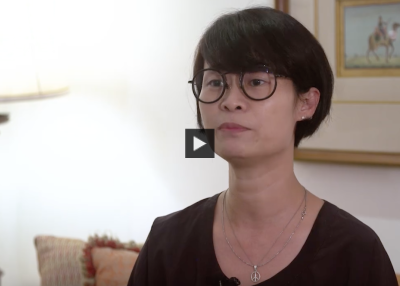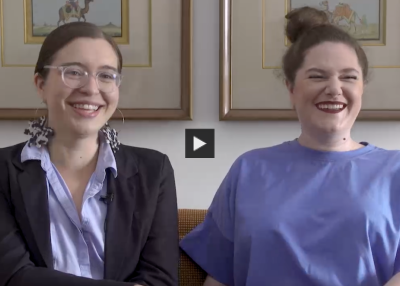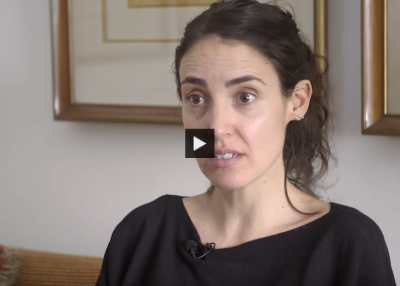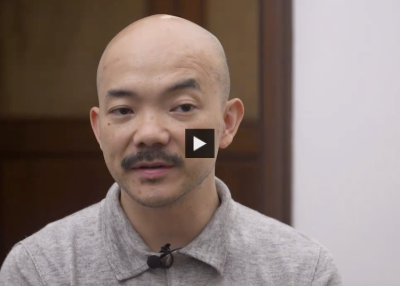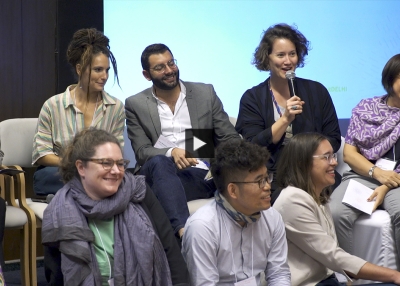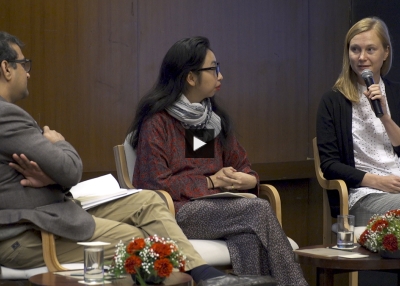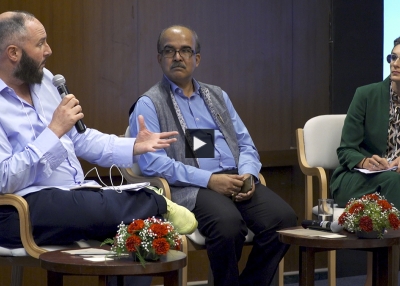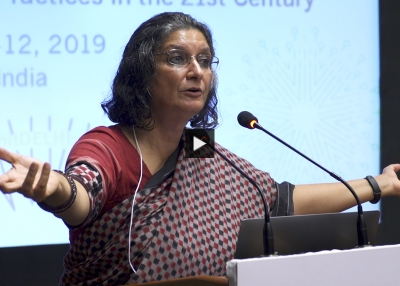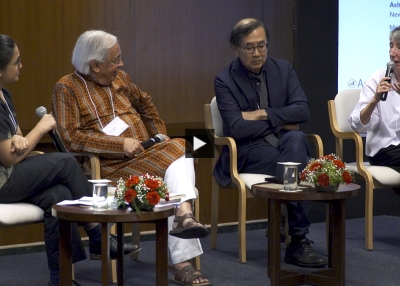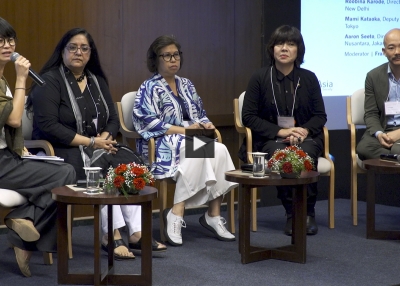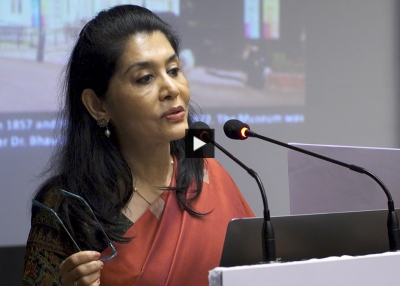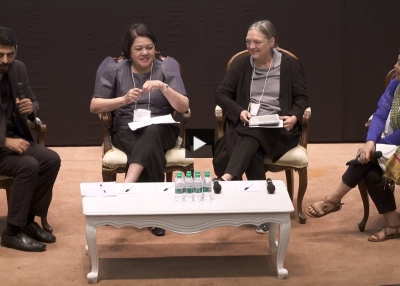2019 Arts & Museum Summit
Collection Practices in the 21st Century
The modern concept of a museum can be traced to the sixteenth-century wunderkammern, or cabinets of curiosities, which were settings for objects procured from around the world to showcase the unique taste and knowledge of their owners. Across the globe, collections of valuable works of art by imperial courts form the basis of many of today’s best-known museums. Given changes in artistic production as well as new tools afforded by today’s technological advancements, artworks no longer need to exist in the physical dimension and can be experienced outside the white cube, which creates new possibilities for finding more democratized forms of viewing art. With so many museums investing in online visitors, the changing distribution of wealth globally, and the exponential economic growth in Asia, it is worth examining collection practices in the arts and museums of the twenty-first century.
The 2019 Arts & Museum Summit will feature presentations, panel discussions, and a workshop featuring leading arts professionals from the Asia Pacific region and beyond. Participants will share their insights on current collection practices and philosophies at arts institutions, including non-collecting museums and artists’ estates. The program will be held in New Delhi, India from October 11 to 12, 2019.
Speakers
James M. Bradburne, Director General, Pinacoteca di Brera, Milan
Yasmine Chemali, Head of Collections, Sursock Museum, Beirut
Kateryna Filyuk, Chief Curator, Izolyatsia—Platform for Cultural Initiatives, Kyiv
Gridthiya Gaweewong, Artistic Director, Jim Thompson Art Center, Bangkok
Ma. Elizabeth "Mariles" L. Gustilo, Senior Director, Arts and Culture, Ayala Foundation, Inc., Manila; and Senior Director, Ayala Museum, Manila
Mami Kataoka, Deputy Director and Chief Curator, Mori Art Museum, Tokyo
Roobina Karode, Director and Chief Curator, Kiran Nadar Museum of Art, New Delhi
Laura Kuhn, Director John Cage Trust, Red Hook, New York; John Cage Professor of Performance Art, Bard College, Annandale-on-Hudson, New York
Pip Laurenson, Head of Collection Care Research, Tate, London
Pablo León de la Barra, Curator at Large, Latin America, Solomon R. Guggenheim Museum and Foundation, New York; Chief Curator, Museu de Arte Contemporânea de Niterói, Rio de Janeiro; and Associate Curator, Museu de Arte de São Paulo
Tasneem Mehta, Director, Dr. Bhau Daji Lad Mumbai City Museum
Sabyasachi Mukherjee, Director, Chhatrapati Shivaji Maharaj Vastu Sangrahalaya, Mumbai
Sneha Ragavan, Senior Researcher, Asia Art Archive in India, New Delhi
Akansha Rastogi, Senior Curator, Exhibitions and Programming, Kiran Nadar Museum of Art, New Delhi
Abhay Sardesai, Editor, ART India, Mumbai
Aaron Seeto, Director, Museum MACAN, Jakarta
Kavita Singh, Dean and Professor, School of Arts and Aesthetics, Jawaharlal Nehru University, New Delhi
Frankie Pochi Su, Director, Hong-gah Museum, Taipei
Akira Tatehata, Director, Yayoi Kusama Museum, Tokyo
Arlette Quỳnh-Anh Trần, Director and Curator, Post Vidai Collection, Ho Chi Minh City
Ashok Vajpeyi, Managing and Life Trustee, The Raza Foundation, New Delhi
Ikko Yokoyama, Lead Curator, Design and Architecture, M+, West Kowloon Cultural District Authority, Hong Kong
Agenda
Day 1
Friday, October 11, 2019
National Museum, New Delhi
1:00—2:00 p.m.
Registration
2:00–2:30 p.m.
Welcome Remarks
Boon Hui Tan
Vice President of Global Artistic Programs and Director of Asia Society Museum, New York
Bunty Chand
Chief Executive Officer, Asia Society India Center, Mumbai
Raghvendra Singh
Chief Executive Officer, Development of Museums and Cultural Spaces, Ministry of Culture, India
2:30—3:00 p.m.
Keynote 1: Collecting Stories
In recent years, the call for more inclusion and diverse representation in collections has pushed museums to reconsider and broaden their scope of research to better serve their publics and present narratives that are relevant and relatable to their audiences. This presentation provides insight into how this practice is currently executed and implemented in museums whose mandate clearly defines their collection.
James M. Bradburne
Director General, Pinacoteca di Brera and Biblioteca Nazionale Braidense, Milan
3:00—3:20 p.m.
Break
3:20–4:30 p.m.
Panel 1: Collection as Preservation
With the ever-growing interest in art collecting and progressing ideas of what institutions should collect, this panel takes a different approach and looks at collection as a means to preserve and conserve existing works of art, especially in more challenging mediums and scales.
Ma. Elizabeth “Mariles” L. Gustilo
Senior Director, Arts & Culture, Ayala Foundation, Inc., Manila; and Senior Director, Ayala Museum, Manila
Pip Laurenson
Head of Collection Care Research, Tate
Ikko Yokoyama
Lead Curator, Design and Architecture, M+, West Kowloon Cultural District Authority, Hong Kong
Moderator: Rahaab Allana, Curator, Alkazi Foundation for the Arts, New Delhi
4:30–5:30 p.m.
Workshop: The Future of Institutional Collecting
Day 2
Saturday, October 12, 2019
India Habitat Centre, New Delhi
9:30–10:00 a.m.
Keynote 2: Collecting in the 21st Century
Many museums established in past centuries are quickly adapting to new trends in museology. This presentation will examine how a museum founded in the nineteenth century to educate the public about world culture is now leading the change in collection practices.
Tasneem Mehta
Managing Trustee and Honorary Director, Dr. Bhau Daji Lad Mumbai City Museum
10:00–11:10 a.m.
Panel 2: Private and Corporate Collections and Institutions
Many of today’s world-renowned museums began as the ambitious dream of a single person or family to bring art to the people. As many of Asia’s private institutions and corporate collections assume this same responsibility, they face similar and a variety of challenges, particularly as they continue to grow.
Gridthiya Gaweewong
Artistic Director, Jim Thompson Art Center, Bangkok
Roobina Karode
Director and Chief Curator, Kiran Nadar Museum of Art, New Delhi
Mami Kataoka
Deputy Director and Chief Curator, Mori Art Museum, Tokyo
Aaron Seeto
Director, Museum of Modern and Contemporary Art in Nusantara, Jakarta
Moderator: Frankie Su, Director, Hong-Gah Museum, Taipei
11:10 a.m.–11:30 p.m.
Break
11:30 a.m.–12:40 p.m.
Panel 3: Artist Estates and Archives
Artworks often outlive their creators and their longevity allows us to witness the genius of artists through what they left behind. Since the twentieth century, it has become a common practice for artists and their heirs to set up foundations and trusts to look after their intellectual property when they are gone. As a result, there is an increasing number of organizations that focus on documenting and archiving materials for artists’ estates. Panelists, each of whom represent an organization that takes care of the legacy of an artist, will share what it takes to keep artistic vision and creation alive and relevant.
Laura Kuhn
Executive Director, John Cage Trust, Red Hook, New York
Akira Tatehata
Director, Yayoi Kusama Museum and Yayoi Kusama Foundation, Tokyo
Ashok Vajpeyi
Managing and Life Trustee, The Raza Foundation, New Delhi
Moderator: Sneha Ragavan, Senior Researcher and Projects Lead, Asia Art Archive in India, New Delhi
12:40–1:40 p.m.
Lunch
1:40–2:10 p.m.
Keynote 3: Museums: New Locations, New Definitions
In recent years museums have proliferated in regions with rapid economic growth. These new institutions range from the spectacular architectural structures with global ambitions in China and the Arab States of the Persian Gulf, to the humbler, community-based organizations aiming to address local needs. What are museums doing in their new locales, and what are they trying to be? And how does this ferment among museums fit with the recent, failed attempt by International Council of Museums (ICOM) to adopt a new museum definition? This presentation raises questions in a field with few answers.
Kavita Singh
Dean and Professor, School of Arts and Aesthetics, Jawaharlal Nehru University, New Delhi
2:10–3:10 p.m.
Panel 4: Changing Public Museums and Institutions
Collections and collecting practices have to change with the times and with the growing demand for more diverse cultural representation and post-colonial narratives, push the boundaries of what a museum or a public institution should do. This panel will also explore how collecting practice reacts to multiple historical perspectives and sociopolitical events.
Yasmine Chemali
Head of Collections, Sursock Museum, Beirut
Sabyasachi Mukherjee
Director, Chhtrapati Shivaji Maharaj Vastu Sangrahalaya Museum, Mumbai
Moderator: Pablo León de la Barra, Curator at Large, Latin America, Solomon R. Guggenheim Museum, New York; and Chief Curator, Museu de Arte Contemporânea de Niterói, Rio de Janeiro
3:10–3:30 p.m.
Break
3:30—4:40 p.m.
Panel 5: Collection Practices in Challenging Times
The arts, museums, and collections can serve as sanctuaries for people to express ideas freely and raise awareness about social issues. However, the notion of art and what it represents may still be new in parts of the world, where arts education and collecting are still at their naissance. This panel will examine the challenges art collections and artistic activities have encountered in different regions and how the arts help bring together communities.
Kateryna Filyuk
Chief Curator, Izolyatsia—Platform for Cultural Initiatives, Kyiv
Arlette Quỳnh-Anh Trần
Director and Curator, Post Vidai Collection, Ho Chi Minh City
Moderator: Abhay Sardesai, Editor, ART India, Mumbai
4:40—4:50 p.m.
Break
4:50–5:50 p.m.
Workshop Report: The Future of Institutional Collecting
5:50–6:00 p.m.
Closing Remarks
Boon Hui Tan
Vice President of Global Artistic Programs and Director of Asia Society Museum, New York
About the Arts & Museum Summit
The biennial Arts & Museum Summit brings together arts and museum professionals from Asia, North America, and Europe to engage in face-to-face discussions. There is no doubt that Asia will experience the most museum growth in the next decade, with more Asian countries now shifting their focus to the cultural sector and building new museums. The Summit is intended to identify and navigate the challenges and potential opportunities developing in the new museum ecology in Asia, and provides professional development and collaborative exchange opportunities among museums internationally.
Each Summit focuses on a specific topic that reflects the current thinking in the arts and museum world. In 2013, the Summit examined the surge of new museums in Asia and the pressing issues institutions face in this century; in 2015, the Summit explored the urgency of cultural heritage preservation in Asia across tangible and intangible mediums, both traditional and contemporary. The 2017 Summit addressed audience engagement at cultural institutions and outreach strategies used to build those audiences.
Supporters
The 2019 Arts & Museum Summit is made possible through support from The Getty Foundation. HTC VIVE is a Summit Supporter.


